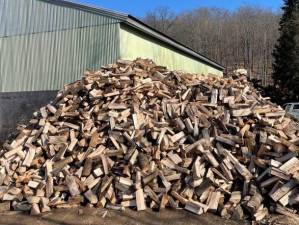Neil Dwyer, the recently re-elected mayor of Monroe, recently explained his plans for a dredging project aimed at removing pollutants and excess sediment from the ponds in town.
In developed areas, runoff in a pond may contain particles that damage the ecosystem. “The first goal is to create a better quality of water and a deeper body of water,” said Mayor Dwyer.
Dredging can help to reverse damage from development and pollution, according to Courtney McPheter, a Monroe-Woodbury alumni and engineering researcher at Villanova University, with a specialization in water resources design.
She warns, “When you have runoff entering lakes, they bring pollutants and sediment along with it, typically in the form of fine particles. When these particles settle in the pond, they make the water body more shallow and accelerate sedimentation—the water body changes more rapidly than it would without human interference. The sediment that accumulates at the bottom of the pond is typically full of organics like nitrogen and phosphorus.”
These organics promote the growth of algae. On top of the aesthetic issues created by excessive algae, this imbalance causes the ecosystem to suffer. As algae decomposes, it absorbs oxygen from the water, making it difficult for other plants and animals to survive.
Poor water quality in the ponds may presage consequences in Monroe and beyond.
“There’s even one area in Jersey that gets our water,” says Mayor Dwyer. “It’s important to keep the ecology in balance.”
The project can cost anywhere from two to three million dollars, Dwyer says. It would deepen the ponds by two feet. He has shared his plan—complete with an engineer’s assessment of the ponds—with senator James Skoufis, and awaits a reply.
As costly as it is, the mayor’s proposal has the potential to improve water quality for years to come.
“Given the circumstances of the pond and the recurrent issues it’s had, I’d say dredging the pond is definitely the right move,” said McPheter. “There can be risks to dredging if it’s not done correctly or if there are vulnerable species in the area. These should be taken into consideration, but overall the pros should outweigh the cons.”
